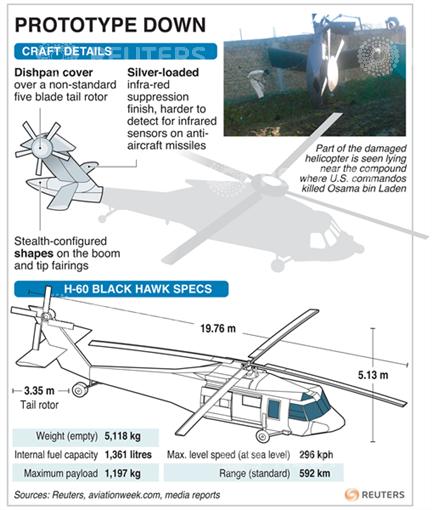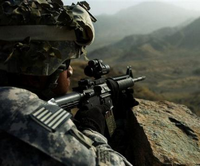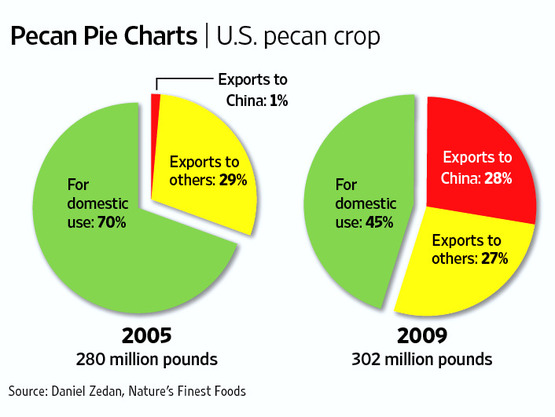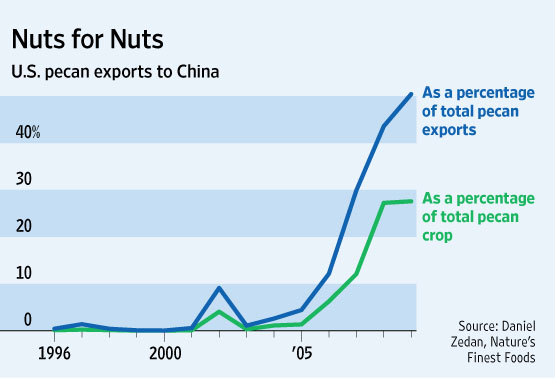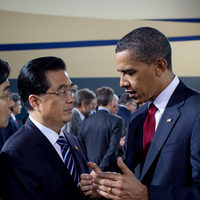 Very sharp article by Mark Thompson.
Very sharp article by Mark Thompson.
The opening:
On a damp, gray morning in late February, Navy admirals, U.S. Congress members and top officials of the nation's biggest shipyard gathered in Norfolk, Va., to watch a computerized torch carve bevels into a slab of steel as thick as your fist.
The occasion: the ceremonial cutting of the first piece of a $15 billion aircraft carrier slated to weigh anchor in 2020. That ship — still unnamed — will follow the just-as-costly Gerald R. Ford, now 20% built and due to set sail in 2015.
Meanwhile, on the other side of the world, China is putting the final touches on a new class of DF-21 missiles expressly designed to sink the Ford and its sister ship as well as their 5,000-person crews. China's missiles, which will likely cost about $10 million each, could keep the Navy's carriers so far away from Taiwan that the short-range aircraft they bear would be useless in any conflict over the tiny island's fate.
Aircraft carriers, born in the years before World War II, are increasingly obsolete platforms of war. They feature expensive manned aircraft in an age when budgets are being squeezed and less expensive drones are taking over. While the U.S. and its allies flew hundreds of attack missions against targets in coastal Libya last month, cruise missiles delivered much of the punch, and U.S. carriers were notable only for their absence. Yet the Navy, backed by the Pentagon and Congress, continues to churn them out as if it were still 1942.
"It's just tradition, the industrial base and some other old and musty arguments" that keep the shipyards building them, says Thomas Barnett, a former Pentagon deep thinker and now chief strategist at Wikistrat, a geopolitical-analysis firm. "We should scale back our carrier design to something much cheaper and simpler. Think of mother ships launching waves of cheap drones — that would actually be more frightening and intimidating." Even Defense Secretary Robert Gates warned last year of "the growing antiship capabilities of adversaries" before asking what in Navy circles had long been the unaskable question. "Do we really need 11 carrier strike groups for another 30 years when no other country has more than one?"
Across Washington, all sorts of people are starting to ask the unthinkable questions about long-sacred military budgets . . .
Our conversation was mostly about carriers. I'm not the great hardware man, but I know enough that we're continuing to buy in the very-few-and-ridiculously-expensive mode rather than the many-and-the-cheap mode that's clearly emerging in cutting-edge technologies. I know also that we're deeply impressed with China's efforts to catch-up on that same track, which, of course, is truly meaningful if you believe major conventional war with China is in the offing. I do not, and so I find that spending on both sides to be largely a waste, less so for us because we seek to keep high the threshold to great-power war and that's a good thing. Problem is, we teach China the same path and now we're increasingly locked into this idiotic arms race that serves neither of our actual national security interests and actually denies us the cooperation that would enable both to accomplish more in the global security arena at less cost.
But why save money - and the world, when we can waste it in large amounts? We're stuck in our QWERTY pathway because it's what we know and love, and it's what our Congress loves to buy. And so China follows us stupidly down that rabbit hole, and we both dream of future missile wars over no-man's lands, while the reality of globalization's rapid expansion stares us in the face in Africa and the Middle East and we're largely irrelevant to the process because we continue to buy billion-dollar platforms to tackle $100 enemies.
This is my favorite part of the piece, worth getting into the blog for later use:
We are spending more on the military than we did during the Cold War, when U.S. and NATO troops stared across Germany's Fulda Gap at a real super-power foe with real tanks and thousands of nuclear weapons aimed at U.S. cities. In fact, the U.S. spends about as much on its military as the rest of the world combined.
And yet we feel less secure. We've waged war nonstop for nearly a decade in Afghanistan — at a cost of nearly a half-trillion dollars — against a foe with no army, no navy and no air force. Back home, we are more hunkered down and buttoned up than ever as political figures (and eager defense contractors) have sounded a theme of constant vigilance against terrorists who have successfully struck only once. Partly as a consequence, we are an increasingly muscle-bound nation: we send $1 billion destroyers, with crews of 300 each, to handle five Somali pirates in a fiberglass skiff.
While the U.S.'s military spending has jumped from $1,500 per capita in 1998 to $2,700 in 2008, its NATO allies have been spending $500 per person over the same span. As long as the U.S. is overspending on its defense, it lets its allies skimp on theirs and instead pour the savings into infrastructure, education and health care. So even as U.S. taxpayers fret about their health care costs, their tax dollars are paying for a military that is subsidizing the health care of their European allies.
Not only is our government becoming an insurance company with an army (some DC wag's great line), but we're enabling others to do the same while they cut down their own army.
And yes, China is headed on the same path. It dreams of a moment in the sun, but it will be cruelly brief and then the realities of accelerated aging and global security vulnerabilities sets in, and then all this arms build-up over Taiwan and the island chains will seem like so much nonsense. But, most definitely, the PLA has a few good years of stupid, uncontrolled spending ahead of them, and it will act like any bureaucracy in that mode: it will waste money catching up somewhat to America's Leviathan force, and when it gets close enough to matter, Beijing will realize it was all a colossal waste of time and money that bought them nothing, because they will never pull that trigger, and even giving the impression that they will triggers a counter-balancing across the region that America is only too happy to provide in terms of arms sales.
Pointless, pointless, pointless.
Meanwhile, globalization moves on, creating the real global security landscape out there.
I say, thank God our budget mess arrived earlier than theirs, because it will force the logical change earlier than theirs. We will be renewed; they will drop off a demographic cliff - and globalization will move on.
Mentioned in the piece one more time:
But $1 trillion in cuts wouldn't really be as drastic as it sounds — or as the military's no-surrender defenders insist. Such a trim would still leave the Pentagon fatter than it was before 9/11. Besides, there are vast depots of weapons that are ready for the surplus pile. The number of aircraft carriers could be cut from 11 to eight, and perhaps all could be scuttled in favor of Barnett's drone carriers. The annual purchase of two $3 billion attack submarines to maintain a 48-sub fleet as far as the periscope can see also could be scaled back. The $383 billion F-35 program really isn't required when U.S. warplanes remain the world's best and can be retooled with new engines and electronics to keep them that way. Reagan-era missile defenses and the nuclear arsenal are largely Cold War relics with little relevance today. Altogether, Congress could save close to $500 billion by smartly scaling back procurement over the next decade.
It's a bold and intelligent argument from Thompson, and I really think this is one of the best pieces of his that I've ever read. It comes very close to opinion journalism - but at its best. These are fair questions, and he poses them well.
Plus, I just like the phrase, "Barnett's drone carriers."
 Tuesday, May 17, 2011 at 6:01AM
Tuesday, May 17, 2011 at 6:01AM After many weeks of speculation and veiled threats-by-extension from Western government leaders, the prosecutor of the International Criminal Court announced on Monday that he is seeking arrest warrants for Muammar Qaddafi, his son Seif al-Islam Qaddafi and his brother-in-law Abdullah al-Sanousi for systematically targeting citizens in Libya's ongoing protests and civil strife. Libya isn't a signatory to the ICC treaty, and prosecutor Luis Moreno-Ocampo declared that the Libyan people should take it upon themselves to make the arrests, if warrants are granted. Moreno-Ocampo said he had enough evidence to go to trial immediately, just another sign that the Qaddafi clan has crossed a line that disallows their staying in power - as far as the West is concerned.

 China,
China,  Leviathan,
Leviathan,  Libya,
Libya,  SysAdmin,
SysAdmin,  US Military | in
US Military | in  Time's Battleland |
Time's Battleland |  Email Article |
Email Article |  Permalink |
Permalink |  Print Article
Print Article 










